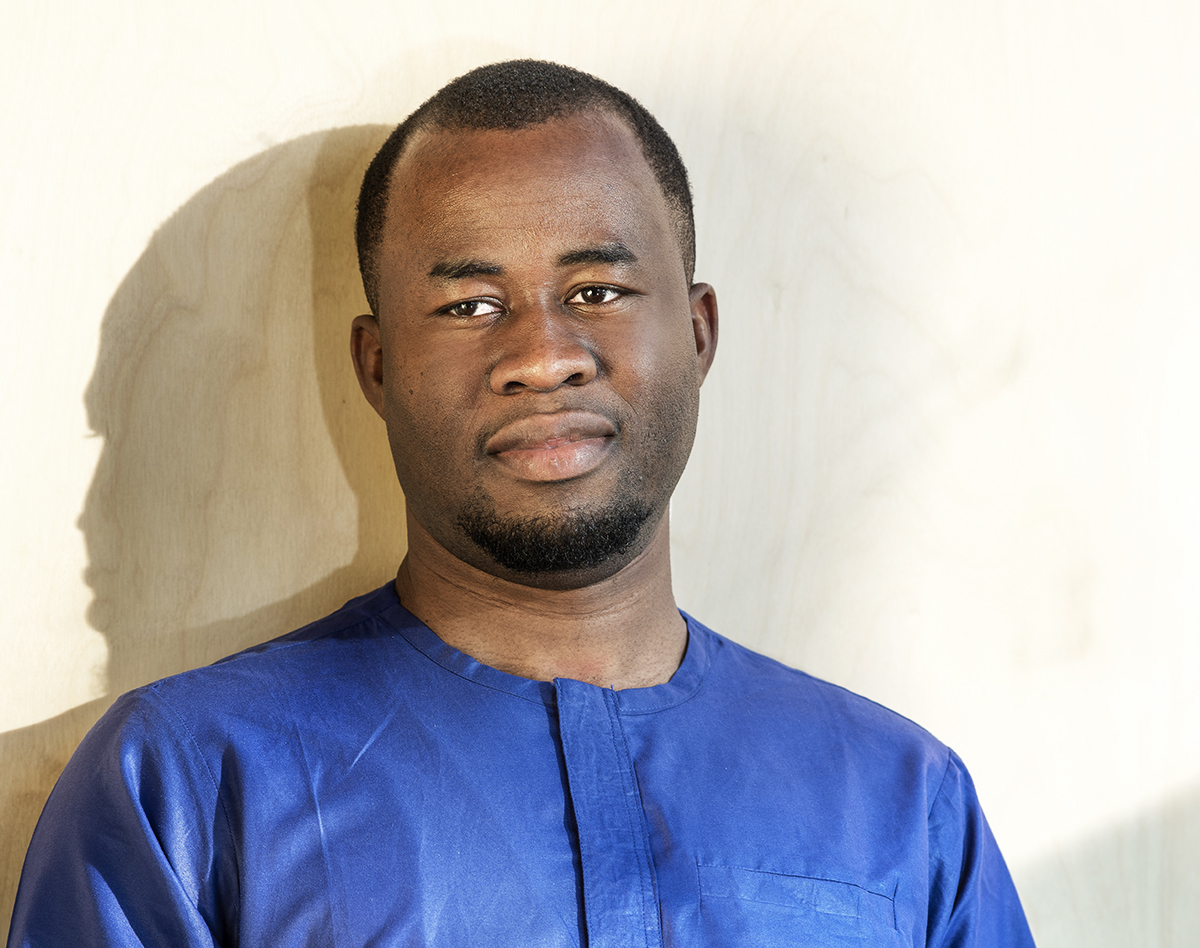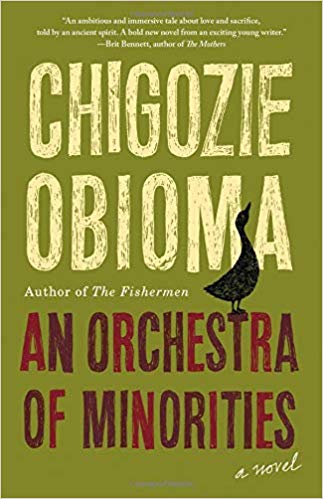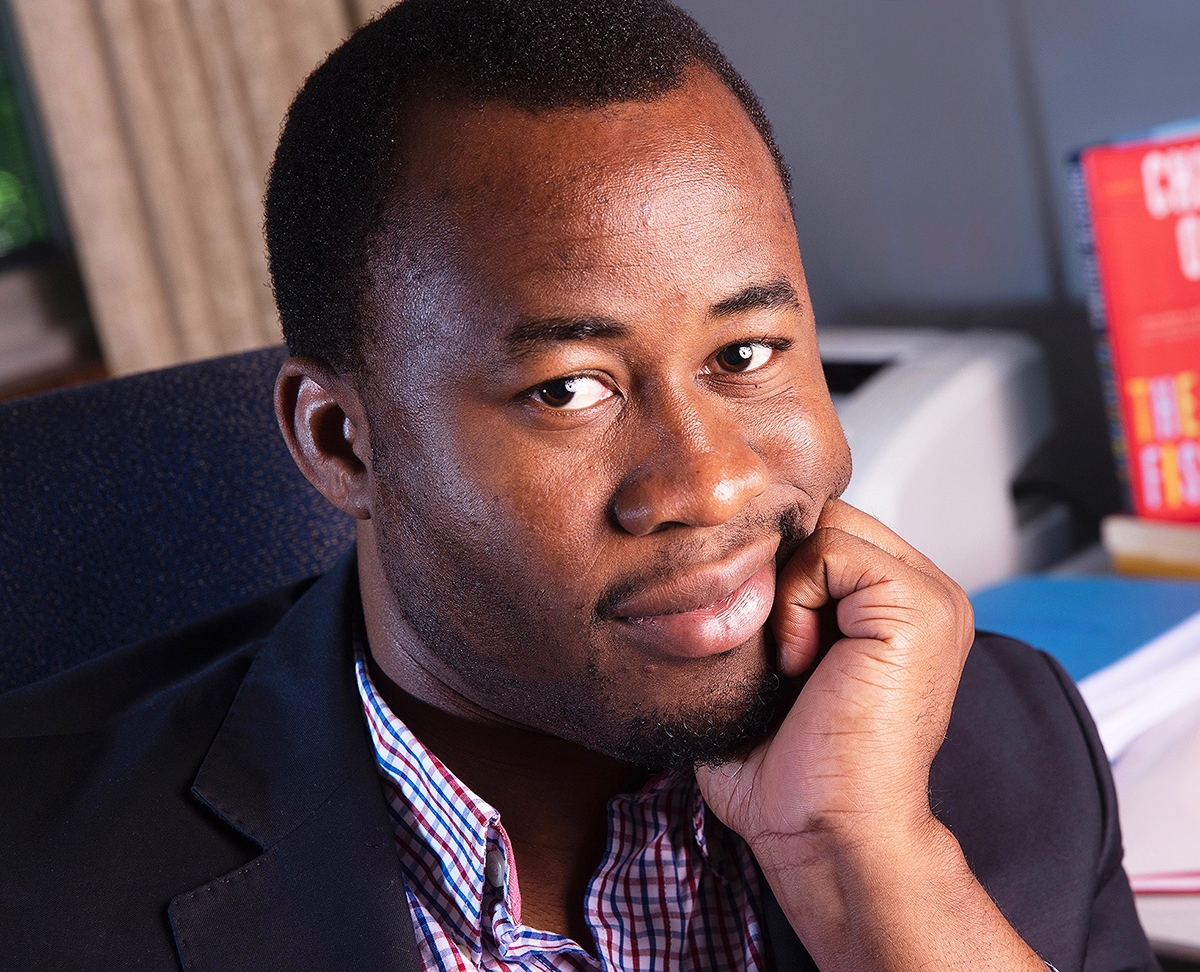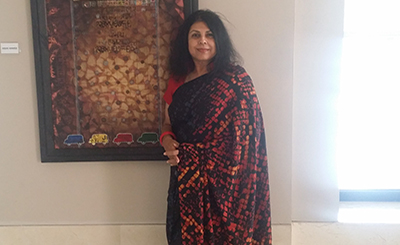
Chigozie Obioma. Photo: Jason Keith
Booker-shortlisted author Chigozie Obioma on his novel, An Orchestra of Minorities, narrated by his protagonist Chinonso’s chi, a reincarnating spirit
Nigerian writer Chigozie Obioma, 33, was shortlisted for the Booker Prize this year for his second novel, An Orchestra of Minorities, four years after his debut — The Fishermen — was on the shortlist for the literary honour. Obioma, assistant professor of Literature and Creative Writing at the University of Nebraska-Lincoln, who has been termed by the New York Times as “the heir to Chinua Achebe”, says that An Orchestra of Minorities attempts to draw the map of the Igbo civilisation, mapping in landmark events like the first encounter with the Portuguese in the 16th century, slavery (through the slave, the chi and souls in Virginia in the 18th century), British colonial period, the Biafra war, and the present time.
The author says: “This is not a conventional novel in the Western sense. In the traditional novel, a character has agency and is capable of making rational decisions to achieve a particular goal. That is not true in this book. In the Igbo worldview, there is a dialectic between fate or destiny and free will. Then, there is the intervention of the chi as the third faculty of realization of desires. One could be born with a bad fate and no matter what such a person does, it can’t change its fate. It could be simply because he has carried on the ill luck of an ancestor or that what he is now living through is what, in the Igbo worldview, is regarded as the ‘re-incarnation of events’.”
Excerpts from an interview:
Shireen Quadri: Your second novel, An Orchestra of Minorities, which was shortlisted for the Booker Prize this year, is a very inventive and empathetic exploration into the transcontinental sacrifices made for love. It is also a meditation on the sheer indignities of travelling that dehumanize an outsider in a foreign land. Tell us about the conception of the novel which is set in Umuahia (Nigeria) in the 2000s. What were the big ideas you wanted this novel to revolve around?
Chigozie Obioma: I conceived the book as a cosmological novel that would investigate the questions of fate, destiny, and the complexities of love. I was inspired by a man I knew briefly in the Turkish Republic of Northern Cyprus who was deceived by fixers and he ended up dying in the country within a week of getting there — falling off the attic of a multi-storey building. In the aftermath of that ultimate tragic event, I began to ponder on these philosophical questions about life and metaphysics, but also about something this man — Jay — had mentioned to me during those few days: that he had made the journey to Cyprus because he was in love with this woman he wanted to return to marry. So, the novel came about as a quest to try to retrace his steps, the trajectory of his journey to Cyprus and the dynamics in his relationship with the woman he loved.
How to tell this story that will explore the metaphysics of being and existence, destiny, fate, free will, love, immigration, class, race and revenge? I wrote sketches in my head until I encountered Paradise Lost (1667) by John Milton two years later, gifted to me as a parting gift by a British expat I knew in Cyprus. That book which explores the fundamental fulcrum on which western civilization is based, free will, was for me that answer. I knew then that I would tell this story through the mouth of the chi, this reincarnating spirit that has been reborn again and again for 700 years. Through it, I will attempt to draw the map of the Igbo civilization, mapping in landmark events like the first encounter with the Portuguese in the 16th century, slavery (through the slave the chi ensouls in Virginia in the 18th century), British colonial period, the Biafra war, and the present time. The chi would be the centerpiece of the Igbo ontology, a belief that — like the free will — was the foundation of the Igbo egalitarian socio-political structure. And the Igbo ontology would stand as a microcosm of the complex beliefs that we had in Africa prior to colonialism, so that I would establish that the colonial experience in Africa was not one long night from which the white man came to save us.

Shireen Quadri: The romance between Chinonso Solomon Olisa, your protagonist, a poultry farmer, and Ndali Obialor, who is training to be a pharmacist, after Chinonso saves her from jumping off the bridge, a tragedy which is avoided. Love blooms between them after a chance meeting much later. Why did you want this episode, a near-tragedy to bring them together early in the novel? Also, even though it foreshadows romance, it is not quite a love story. Did you have your gaze at issues like class, and its broader ramifications, as well strangling of opportunities for the poor?
Chigozie Obioma: There are two main characters in this novel: Chinonso and the Chi. Most people tend to read the book as the story of Chinonso alone. If you read it that way, then perhaps you will read some of those issues into the book. But it is the story of the chi and his narration of Chinonso’s story. Granted that the chi claims that it is in pursuit of truth and we have to believe because it is standing before the jury of gods and spirits, it is still deliberately skewing the story to meet a certain narrative. So, I guess the chi decides to begin its narrative from there to establish Chinonso as an upright character who is willing to sacrifice what he loves the most to save another person. This quality is what ultimately endears Ndali to him. I believe she knows the relationship is doomed, but continues on because she believes he is sacrificial and will do anything to be with her. And she pities him.
Chinonso, on his part, loves her. I believe it is a love story, and people love differently. He loves her the way he loves his fowls: with a possessive and obsessive love that can be at once good but also dangerous. We’ve seen this kind of love in literature before. For instance, the love between, say, Sethe and her daughter whom she kills to protect her from slavery in Toni Morrison’s Beloved. That is love. There is a spectrum of the human experience, and people can feel and realize their emotions differently.
Shireen Quadri: The novel also details the heartbreaking quotidian horrors in the lives of many African migrant farmers. Does this stem from real-life issues of the African farmers, and many of those around the world?
Chigozie Obioma: I believe it does. Not often do we hear stories from the lowliest in society, and in my part of Africa, farming is seen as a low-status job. Except of course it is a large-scale, mechanized enterprise. It is believed to be a job for illiterates; those who do not have any other possible recourse to a better estate in life. So, since I wanted to have Chinonso as a lowly and lowly character, who will be humble and gullible in the beginning, being a farmer was the best choice available.
Shireen Quadri: Talking of the poor brings me to another underlying theme of the novel. The “orchestra of minorities”, as it was described by Chinonso’s father, refers to the crying of birds mourning the ones among them who are slaughtered. However, in a wider scheme of things, it also serves as a symbol of the downtrodden and the dispossessed, many of whom keep making impossible journeys to make their lives better, and, often, ending up in bigger tragedies.
Chigozie Obioma: It does, and this is the point the chi is trying to make to the jury of high gods. To fully understand this novel, one has to understand the Igbo worldview. This is not a conventional novel in the Western sense. In the traditional novel, a character has agency and is capable of making rational decisions to achieve a particular goal. That is not true in this book. In the Igbo worldview, there is a dialectic between fate or destiny and free will. Then, there is the intervention of the chi as the third faculty of realization of desires. One could be born with a bad fate and no matter what such a person does, it can’t change its fate. It could be simply because he has carried on the ill luck of an ancestor or that what he is now living through is what, in the Igbo worldview, is regarded as the “re-incarnation of events.” In that way, Ndali might be his goose reincarnated. Thus, the chi is trying to argue that Chinonso’s actions are not entirely his making. There is a paradox there, I know, but this is what I’m trying to realize on the page. The question then becomes, what judgement does the jury headed by Ala, the goddess of the earth, render? That’s up to the reader to find.Thus, the chi makes it a point to insist that Chinonso was doomed from the beginning and his actions later in the novel are as a result of these spiritual equations.
Shireen Quadri: How did you hit upon this narrative device? And what led to telling nearly half the story in flashbacks?
Chigozie Obioma: The chi is a device that allows me to push the limits of the point of view in fiction. It is at once a first-person narrator, an omniscient voice, a third-person narrator, and sometimes, even a second-person narrator. It is almost an omniscient narrator, except for the few times it leaves the body of its host. So, it is close throughout. It can hear Chinonso’s thoughts, listen to his conscience speak to him. It can see Chinonso’s past, can even see into the time before Chinonso came into existence. I think its account is much fuller than if Chinonso had told his own story — at least in my view. Also, knowing so much allows the chi to ponder on the human condition and illuminate the complexities of Igbo philosophy and worldview. So, the chi is not only a narrator, it is a philosopher as well.
Shireen Quadri: The novel has some parallels with Homer’s Odyssey in the sense that it recasts the classic tale in some scenes. For instance, when Chinonso arrives in Cyprus to study after Ndali’s wealthy parents reject him as a suitor to their daughter, he is greeted in a way he would not have the wildest idea about, and is betrayed by his fellows. Also, there is Odysseus-Penelope paradigm that is established between the central pair: Chinonso’s delayed journey back to his beloved; Ndali’s long wait for his return. With this novel, did you set out to reimagine or recast Odyssey for the contemporary times? How do you look at the idea of love and travel in an increasingly changing world?
Chigozie Obioma: I think the parallels are faint except of course in the dynamics of a man leaving home on a journey, which goes horribly awry so that he is unable to return home for a long time. While away, undergoing all sorts of trials and tribulations, he is hoping that Ndali —his Penelope — will be faithfully waiting for him. But in the novel, The Odyssey itself becomes a myth employed by the chi to try to cheer Chinonso onwards on his journey. When it fears it might be losing sway over its host, the chi makes the strategic choice of using the story as prompt, thereby imputing in Chinonso’s mind, the idea that Ndali will be waiting for him. Thus, The Odyssey inspires a mythology of love which ends up destroying Chinonso when, for much of the novel, the reality of love had sustained him.
Shireen Quadri: Chinonso’s visible Africanness lies at the bottom of much of his suffering in Cyprus. He is mocked at by Europeans for his unusual hair and they also deny him work. He is cruelly maligned and mistreated. In Cyprus, he is once even jailed for a crime he didn’t commit. How do you see the identity of your protagonist impinging on the opportunities that come his way?
Chigozie Obioma: Most of the tribulations of Chinonso were inspired by actual events. One of the tragedies of the post-colonial mess that most African countries remain is the mass emigration which then leads to the kind of unfortunate situations like the one Chinonso finds himself in. I myself saw that kind of thing — many times, to quote the chi.
Shireen Quadri: An interesting observation by some reviewers of your novel has been that you “exalt the mouth as a site of power” — benevolent or violent. Your debut also delved into the site of mouth as the “locus of communion between spirits and flesh” through the prophecy of a madman? What would you say about this observation? Did you consciously work on it in both the novels?
Chigozie Obioma: Yes, in many ways, I think such readings strike me as close to home. But my central thesis would be that I’m trying to probe the metaphysics of being and existence in An Orchestra of Minorities and The Fishermen. I’m trying to understand whether there is such a thing as fate or destiny, philosophical questions I grew up around. I’m also deeply interested in the emotional evolution or motility of characters over the course of a narrative. How does a brother who loves his siblings so much go from loving them to truly hating them? How does a man who sacrifices his prize chickens to save a woman from suicide go from such sacrificial love to vindictiveness? This is the place where the power of “the mouth” comes in, bearing in its hands its redemptive and destructive powers.

Shireen Quadri: The novel also stands out for its vividness, its strong imagery. There are symbols and ample tautology coursing throughout the novel. How vital are these elements to your storytelling? You also seem to pay a lot of attention to the language. How do you work on your sentences?
Chigozie Obioma: I don’t know the answers to these questions except that I am somewhat of a maximalist and I adore the English language as well as the other languages I speak which feed it. But in The Orchestra of Minorities, I wanted the chi to possess the dynamism of a reincarnating spirit who has lived for close to a millennia. Thus, it possesses antique and even prelapsarian eloquence, mixed with old and modern ones. Over the course of the novel, there is a range of registers that it employs, and they are often always ornate or elevated diction. This is in keeping with the tenor of the chi.
Shireen Quadri: What role do you see women have in both your novels? Do you think their voice is somehow subsumed by the physical actions and psychic rumblings of men? Did you consider an alternative way to portray Ndali and her presence in The Orchestra of Minorities, a way that ensured she did not seem to play second fiddle to the man or men in her life? Do you see this as a symbol of the gender prejudice that abounds countries like Africa and a large part of Asia? Would a greater focus on the woman character have led you away from your fixation on the “repressed, claustrophobic, paranoid psyche of its broken narrator”, as a reviewer put it?
Chigozie Obioma: No, I don’t think the voices of women are repressed in my novels at all. In The Fishermen, the mother of the boys is a central figure, the only character not named after an animal. She is “The Falconer,” keeper of animals rather than one herself. Others, that is the “men,” are eagles, spiders, fungus, searchdogs, etc. She is present from the beginning of the novel till the very end, and is the voice of reason, the one whose counsel, when not adhered to, leads to destruction. But An Orchestra of Minorities is a different novel. It is a novel that focuses exclusively on Chinonso and his chi. Because I tell the story through Chinonso’s chi, its primary concern is itself and its host. Every other character and what happens to them is somewhat secondary to its narrative. Ndali, Jamike, and every other character are peripheral. It is the singular journey of this man from before he was born and still existing in a state of un-being to this present moment when he has committed this great crime. It only happens that Ndali is the most important character in Chinonso’s life (his family is almost non-existent) and so some readers want her to be more fully known. But that is not the project of the novel.
That said, I am aware of activist ways of reading that tends to ignore the actual goal of a project and inflict upon it the ideology of the reader. For me, that is a bad way of reading. The main function of criticism is or should be exegetic not analytic. So, perhaps that sadly-phrased analysis of Chinonso’s later state might be part of the goal of the story after all. Perhaps it tries to reveal what we can become when we are broken?
More from The Byword
Comments
*Comments will be moderated











